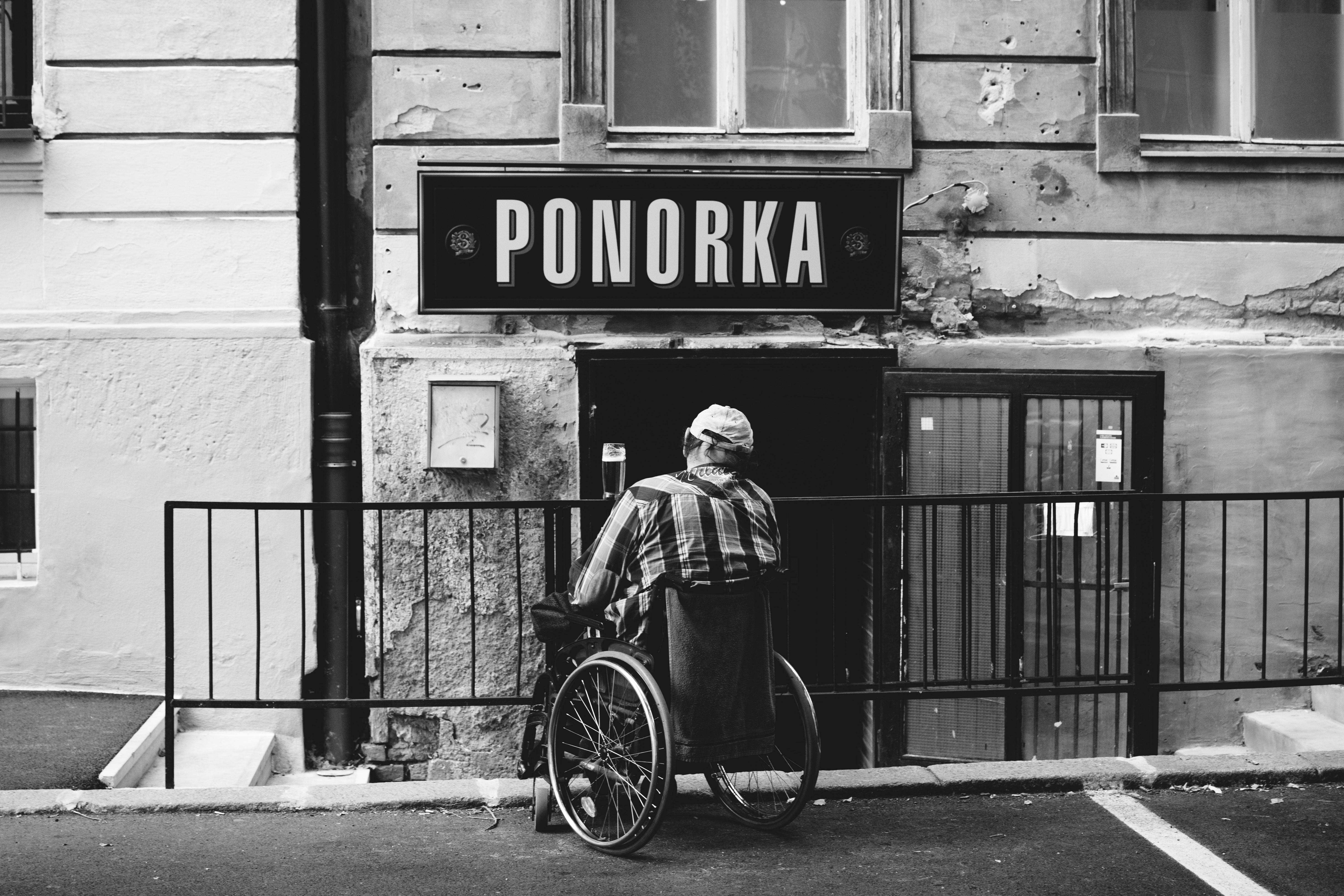Disability, an Issue for All Ages

Building on the results of a recent study on physical or sensory disability in older age, Ann invites anti-ageism advocates to learn from the experience of the disability movement to counter exclusion mechanisms that are putting people living with disability (of all ages) at the margins of society.
Decades ago disability activists rejected a view of disability as solely a matter of individual difference or biology, instead establishing an understanding that ‘disability’ is also caused by social factors (or contributed to by them) such as physical environments and prejudice of others. But if we become disabled as we age, the experience tends to be seen as a personal, bodily issue, not one contributed to by our material resources, government policies, social networks and the nature of our communities.
These were issues that informed my recent study on physical or sensory disability in older age. I found that people experienced changes in their bodies with ageing that they found disabling. But that was only half the story. They could also experience more or less ‘disability’ depending on their particular circumstances.
For example, they could describe feeling side-lined or left out when they started to use aids like rollators or wheelchairs – and this could happen within families, community groups and neighbourhoods. Some felt that their lives were constrained by inaccessible buses, footpaths or unsuitable housing. They could feel that they had crossed a boundary and were now considered ‘other’ or lesser than others (something they often associated with starting to use aids). As one woman said, I’m seen ‘as just an old woman with a stick’.
All of this brings me back to disability activism. Because what people described was being ignored or depersonalised, having agency denied, or other people being embarrassed or fearful around them. These are experiences that disabled activists have highlighted and resisted for decades. I suggest that societies should be more accepting of disability as a normal part of most lives (at some point in the life-span), so that we can form communities that recognise our human rights and include us all.
Read also:
A Day to Reaffirm that Older People Have Rights
Our thematic focus on ageism and disability
—
Dr Ann Leahy, has recently completed a PhD on ageing and disability at the Department of Sociology, Maynooth University, Ireland, where she was an Irish Research Council Scholar. Read more about attempts to bridge ageing and disability on the website of the Bridging Aging and Disability Network, including another blog by Ann Leahy here.


Facebook Comments